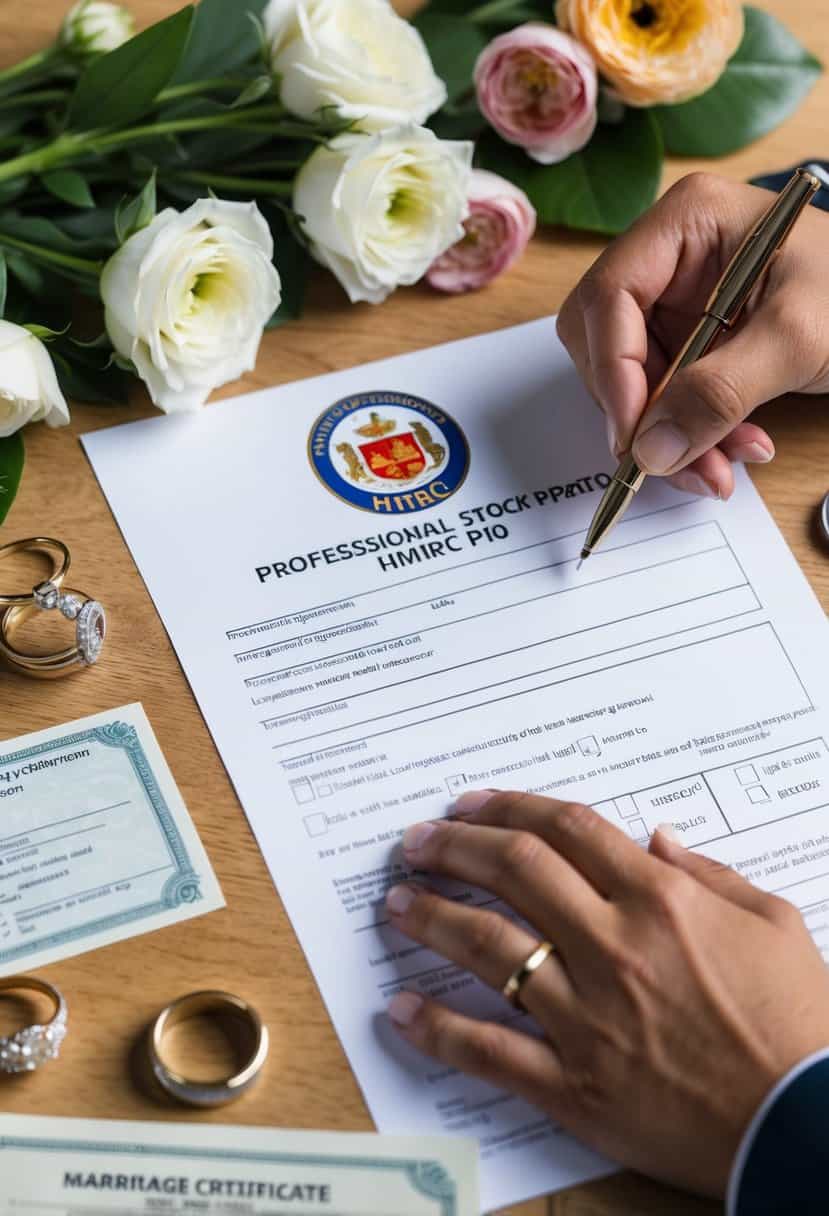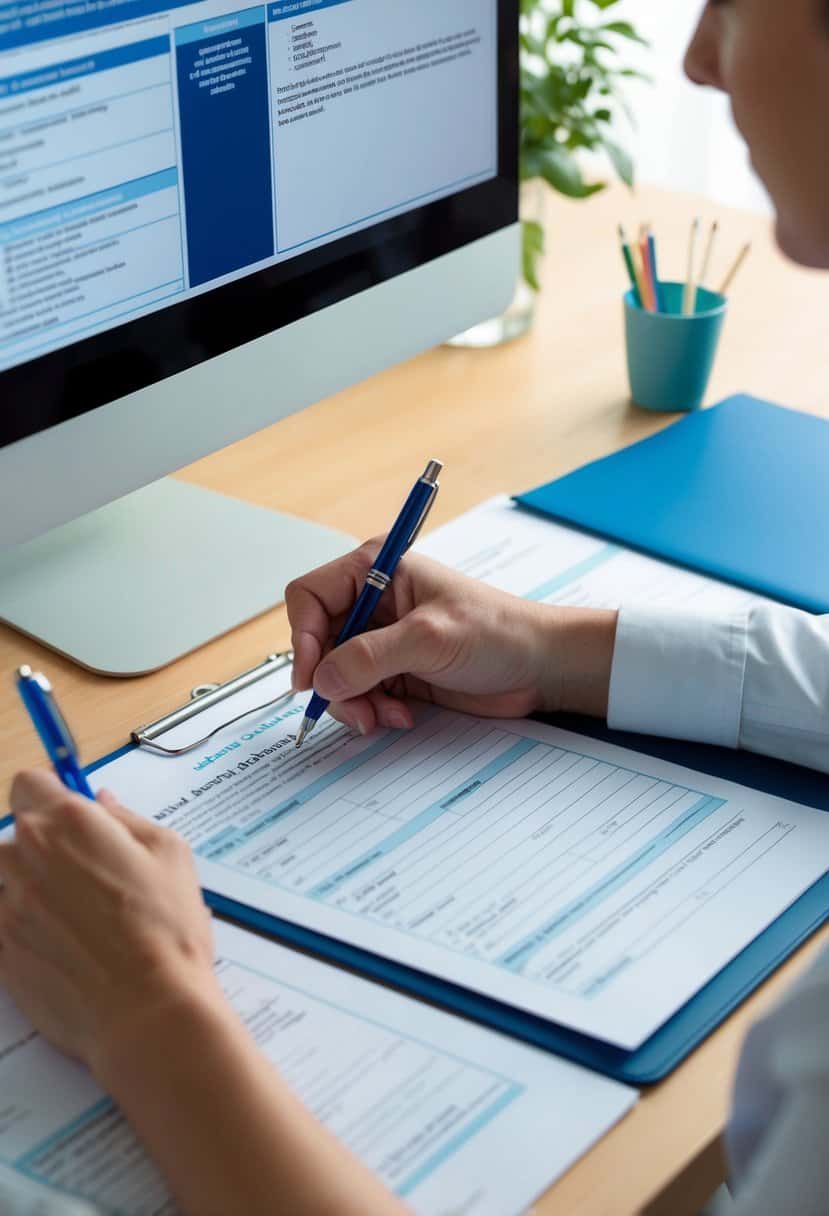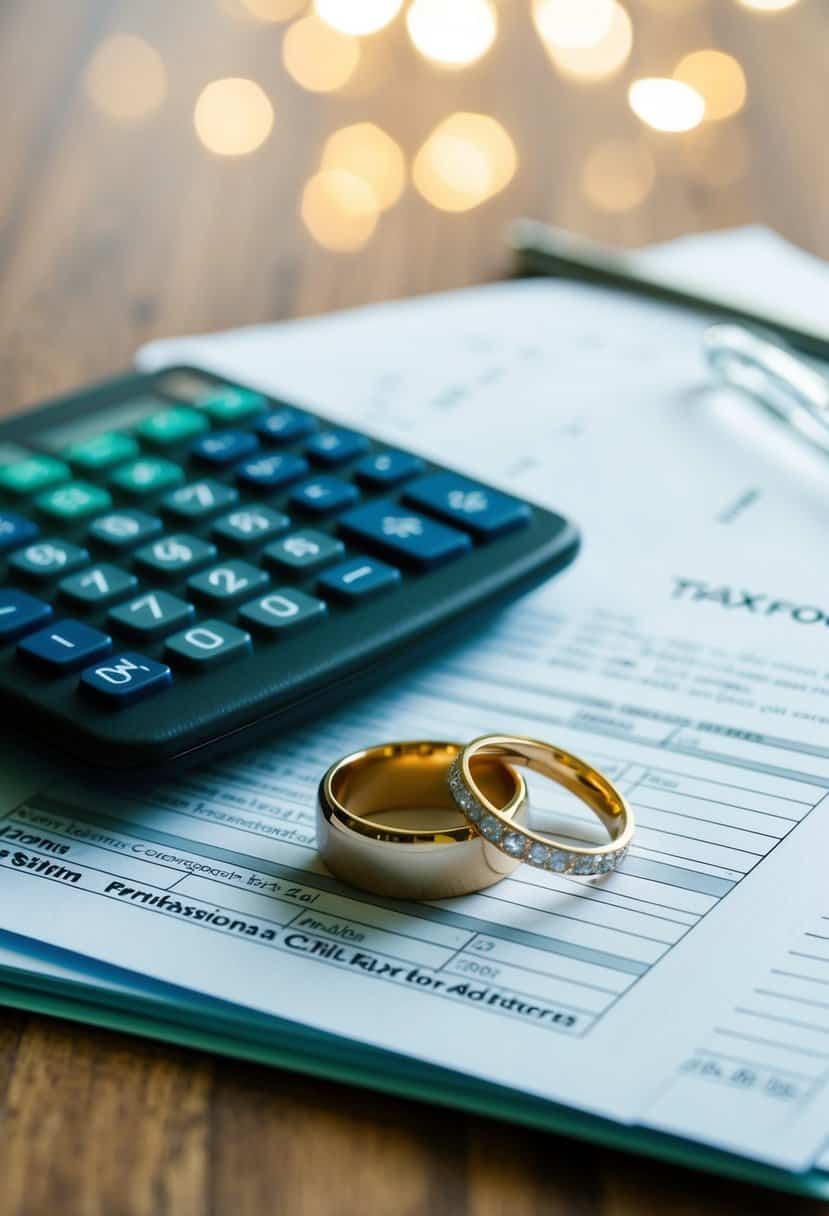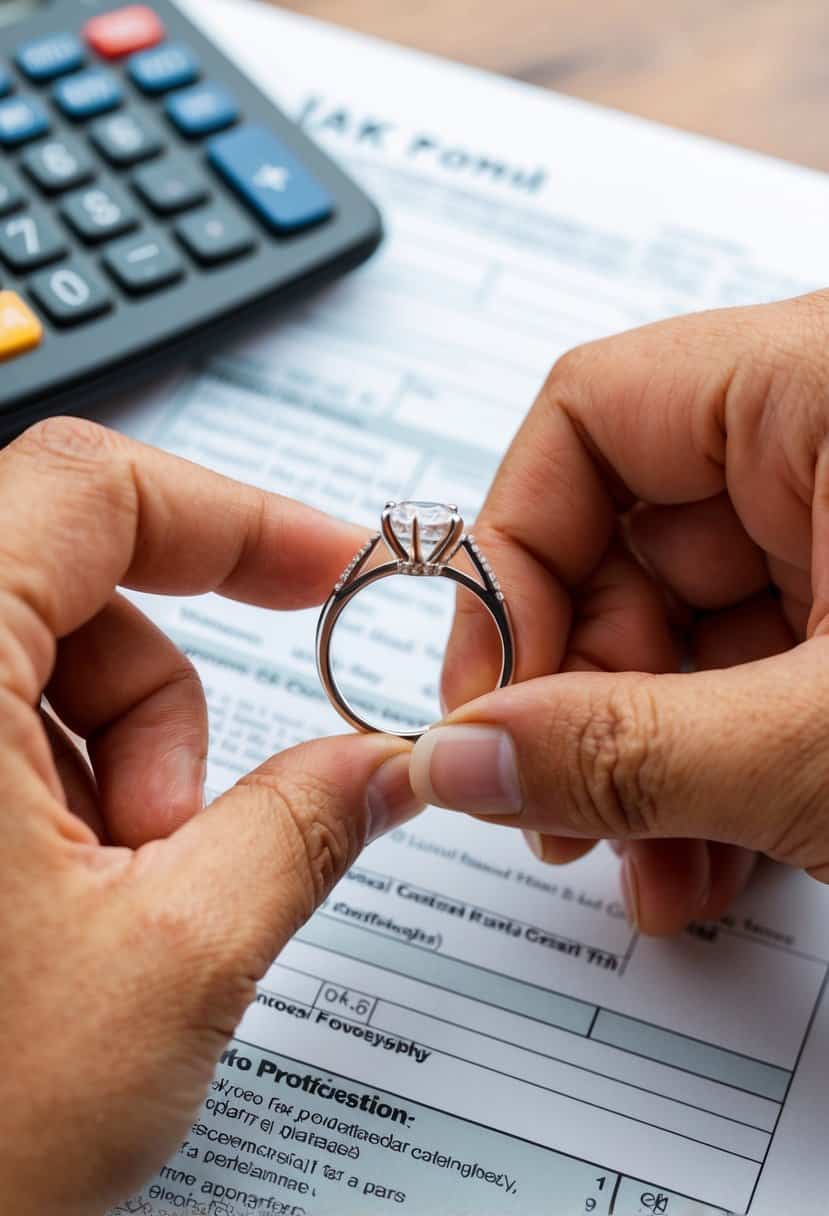Do I Have to Tell HMRC When I Get Married? What You Need to Know!
Getting married is a huge milestone, and while there’s a lot to plan, it’s important not to forget about the practical details. You must tell HM Revenue and Customs (HMRC) when you get married or enter into a civil partnership. By doing so, you ensure that your personal details are up to date, which might affect your tax code.

Changing your marital status with HMRC can be done online, making it a simple task to tackle among all your wedding plans. It’s crucial to keep this updated, as not informing them could lead to potential issues down the line, such as incorrect tax calculations.
Besides marital status, remember to review any other personal details like your name or address with HMRC. This helps keep your records accurate and assists in any future tax filing or communication from the government. Updating these details ensures a smoother transition into your new life together.
Understanding Your Tax Responsibilities When Married

When you get married, your tax situation might change. There are some important aspects to consider, such as the Marriage Allowance, your tax code, and how your income tax is managed through PAYE (Pay As You Earn).
Marriage Allowance and Personal Allowance
The Marriage Allowance can benefit married couples by allowing one partner to transfer some of their unused Personal Allowance to the other. The Personal Allowance is the amount you can earn each year before you start paying income tax. If one spouse earns less than the Personal Allowance, they can transfer a portion (up to £1,260 in 2023) of their allowance to reduce the other’s tax bill. It’s important to know if you qualify for this and to apply properly.
Applying for Marriage Allowance can save you money on taxes. You can apply online through the HMRC website. Make sure both you and your partner are aware of the possible changes this could bring to your overall tax responsibilities.
Changing Your Tax Code
Getting married can sometimes result in a change to your tax code. Your tax code determines how much tax is deducted from your income via PAYE. After marriage, it’s essential to check if your tax code needs updating. You might receive more or less money in your paycheck than expected if it’s incorrect.
To update it, inform HMRC about your change in marital status. You can do this online. A correct tax code helps ensure you’re paying the right amount of tax and receiving all allowances entitled to you.
Impact on Income Tax and PAYE
Marriage can affect your income tax and PAYE situation. If you’re using PAYE, your employer withholds income tax from your paycheck based on your tax code. When married, the adjustments in allowances and tax codes might change the amount deducted.
Also, being married might mean a difference in how your taxable income is calculated. This can impact the net income you end up taking home. Keeping track of these changes is crucial to avoid overpaying or underpaying taxes. Always stay informed and communicate with HMRC to ensure everything is in order, particularly if you notice discrepancies in your pay.
Notifying HMRC About Your Marriage

When you get married, it’s important to inform HM Revenue and Customs (HMRC) to ensure your personal details are up-to-date. This can affect your tax code and eligibility for certain allowances.
Updating Personal Details
You need to let HMRC know if your personal details change due to marriage. This includes changes like a new last name or a different residential address.
Updating these details helps you avoid potential issues with tax records or communication. If you’ve changed your name, provide HMRC with a copy of your marriage certificate. You might also need to update other documents, such as your National Insurance record.
To make these changes, you can call HMRC or send the information via post. Ensure you have your National Insurance number ready when contacting them. This simple step can prevent complications with your tax affairs.
Using the HMRC App or Online Services
The HMRC app and online services offer convenient ways to update your details after marriage. You can log in using your Government Gateway ID and navigate to the section for personal details change. Here, you can update your name, address, and marital status.
Using the app or online services saves time compared to phone calls or mail. It’s secure, and you receive confirmation when your details are updated. This means fewer chances of miscommunication or errors.
If you haven’t used the app before, you’ll need to set up a Government Gateway account, which requires some basic information. Once registered, updating your details is straightforward, helping you stay on top of your tax matters without hassle.
How Marriage Affects Self Assessment and Tax Returns

Getting married can change how you manage your finances, including taxes. You might need to update your Self Assessment tax return and business records. These changes can involve taxable benefits, capital gains, and shared assets like shares.
Filing a Self Assessment Tax Return
When you get married, you might need to adjust your Self Assessment tax return. Your tax code and personal allowance could change, especially if you claim certain allowances.
For example, some couples benefit from the Marriage Allowance, which lets you transfer part of your personal allowance to your spouse.
If you jointly own income-generating assets like shares, both incomes may need to be declared. Changes in your income, such as a partner starting a new job, should be updated to avoid mistakes in your tax return. Always make sure your return includes all taxable benefits that apply to you.
Reporting Changes to Business Records
Marriage can impact your business records if you own a business. Any change affecting income, such as a partner helping with the business, must be updated.
Accurate business records are crucial for calculating tax liabilities, including capital gains tax if you sell assets like shares.
If your spouse becomes a business partner, update your records to reflect their new role. These changes must also be reported to HMRC to ensure correct tax reporting.
Other Tax Considerations for Married Couples

When you get married, it affects various tax elements you should consider. These include Child Benefit and Tax Credit changes, as well as Pension contributions and related tax relief options.
Child Benefit and Tax Credit Implications
Getting married might affect your eligibility for certain benefits. If you or your partner earns more than £50,000, the Child Benefit High Income Charge may apply. You’ll need to fill out a Self-Assessment tax return to deal with these changes.
Marriage might also impact your Tax Credits. When living together, your incomes are combined, potentially affecting eligibility.
Update your joint income with HMRC to ensure your credits reflect your current situation. Missing this can lead to overpayments, which you’d have to pay back.
Pension Contributions and Tax Relief
In marriage, your pension strategy can become more significant. You can still contribute to private pensions independently, but you should consider the potential tax benefits.
Each person has a pension contribution limit that attracts tax relief.
If one partner pays higher rates of tax, transferring pension savings within legal limits can lower your family’s tax bill. Additionally, Marriage Allowance might allow you to transfer part of your personal allowance to your spouse, lowering taxes. Be sure to notify HMRC to optimize these benefits and ensure you receive accurate tax relief.
Working With Your Employer Or Tax Agent

When getting married, it’s important to update your tax and payroll information. This helps ensure that everything is accurate and up-to-date with both your employer and any tax agent you might work with.
Updating Your Payroll Details
Your employer needs to know about changes like marriage, as this can affect your tax code. To update your payroll details, inform your HR department as soon as possible.
This information helps in making sure that your tax deductions match your new circumstances.
You might need to provide documents like a marriage certificate. This ensures all personal details, including your surname (if it changes), are correct. Keeping everything updated is crucial to avoid future issues with taxes.
Seeking Professional Assistance
Working with a tax agent can make handling tax matters smoother. A good accountant will help you understand what you need to do next.
Notification of changes like marriage might require adjustments in your tax planning. A tax agent can assist with adjusting your tax code and ensuring everything aligns with your new status.
They can also help you maximize tax benefits related to your salary and marital status. Regular communication with your accountant can prevent potential issues with HMRC.


